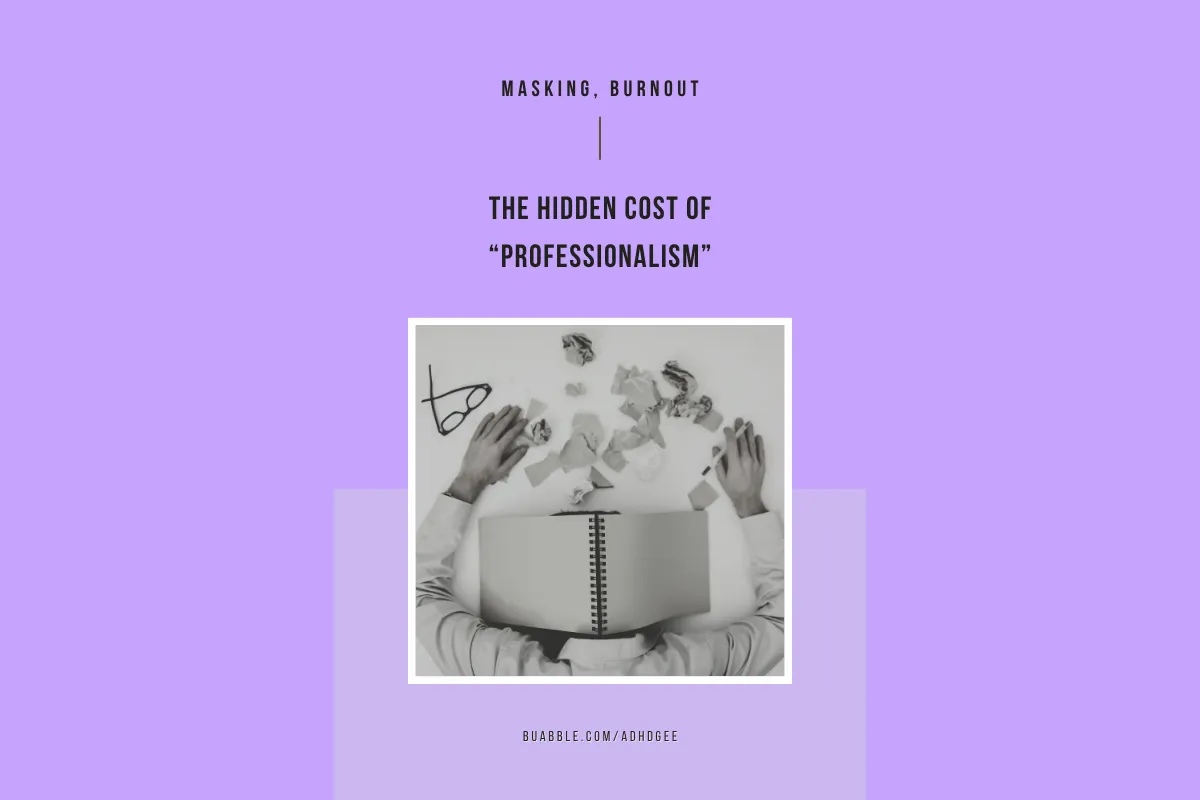
Masking, Burnout, and the Hidden Cost of “Professionalism”
Masking, Burnout, and the Hidden Cost of “Professionalism”
“I feel like I have to work twice as hard to seem half as competent as my coworkers, and even then, I’m never sure if I’ve done enough.”
This is what one neurodivergent woman told me during a coaching workshop. She was not alone, as other participants shared similar feelings.
In many workplaces, “professionalism” is code for conformity. Conformity in communication, appearance, work style, and social behaviour. All of which can be challenging, unnatural, or harmful for neurodivergent people.
Let’s talk about masking, and why it’s burning people out.

🎭 What Is Masking?
Masking is the act of suppressing traits or behaviours to fit in with neurotypical expectations. It can look like:
Supressing stimming or movement
Over-preparing for meetings to avoid seeming “all over the place”
Mimicking social scripts to appear more “normal”
Hiding exhaustion or sensory overload
It’s emotional labour. And it’s invisible.
😒 The Impact of Chronic Masking
At first, masking helps neurodivergent people navigate the workplace without judgement. But over time, it erodes confidence and well-being.
The result?
Anxiety
Burnout
Identity confusion
Quiet quitting or full-on collapse
What appears “fine” on the outside may be survival mode on the inside.
☠️ When “Professionalism” Causes Harm
Many employees feel they must be “on” all the time to be taken seriously. But for neurodivergent people, this performance is draining, especially when professionalism is defined by outdated norms.
Being concise, quick, and direct isn’t always accessible.
Eye contact isn’t always comfortable or meaningful.
Sitting still, staying quiet, or “presenting well” isn’t always a sign of engagement.
✅ What We Can Do Instead
Redefine professionalism to include authenticity and flexibility.
Encourage rest and recovery as legitimate needs, not weakness.
Train leaders to recognise when “good culture fit” is just code for “acts like me”.
Build psychological safety where masking isn’t a survival strategy.
Final Thought
Inclusion means creating space where people don’t have to hide.
If your employees are burning out from pretending, it’s not a people problem, it’s a culture problem.
👉 I help organisations audit their workplace practices, train their teams, and coach managers to better support neurodivergent employees.
📩 Book a free Introductory Conversation on [email protected]
